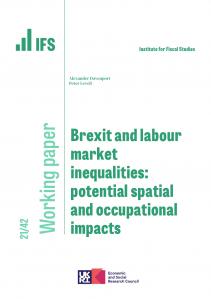The SNP’s manifesto offers big gains to a number of targeted groups in Scotland - but would involve difficult trade-offs in a tight budgetary environment.
The SNP manifesto contains significant pledges that if delivered would significantly expand service provision for and/or boost the take home income of a number of groups in Scotland. This includes a significant expansion of childcare provision, increases in a number of means-tested benefits and council tax exemptions for all 18–21 year-olds.
On public services, the policies also continue with a trend of making services free for everyone, rather than targeted on those with the lowest incomes through a means-test. The manifesto pledges to add to the list free dental care, as well as free breakfasts and lunches all year round for all primary aged children, and to abolish charges for all social-care services received at home.
On taxes, the short-term changes proposed are modest, but there are hints of bigger changes in the longer-term. Proposed changes to benefits continue the theme of recent years – more for low-income families with children in particular – although if a universal basic income is taken forward in the longer term, that would be a much more radical (and challenging) change (and as recognised in the manifesto, not practical under the Scottish Government’s current powers).
The manifesto does not provide information on how much these various pledges will cost altogether, which is disappointing. But the list of policies included clearly has a significant net cost. Paying for this in the context of what will likely be a tight fiscal environment in the coming parliament would require tricky trade-offs, and potentially either (as yet, unspoken) tax rises, or cuts to at least some other areas of public spending. A stated aim of not increasing income tax – the main tax currently under the Scottish Government’s control – and plans to cut business rates could make this an especially difficult circle to square.
David Phillips, an Associate Director at the IFS who leads the institute’s work on devolved and local government finance, said:
“The SNP’s manifesto continues with a trend of greater universality in public service provision - providing services free to everyone, rather than using means-testing to focus support on those with the lowest incomes. The plans set out would also mean substantial gains for certain groups of households: many families with, particularly younger, children; households that would benefit from the exemption of all 18 to 21 year-olds from council tax; and those paying for home care, for example.
Paying for all of these pledges in what could be a tight funding environment over the next few years will require tricky trade-offs though: tax rises or spending cuts in at least some other areas. The tougher fiscal situation an independent Scotland would face in at least its first few years would make the challenge of delivering these commitments even harder.”












